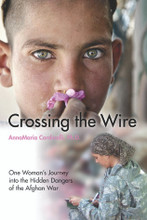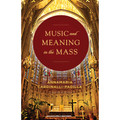 Loading... Please wait...
Loading... Please wait...Categories
- ARTIST
- BIBLES & BOOKS
- **SPECIAL DEALS**
- CHANT
- CHILDREN
- CHRISTMAS
- CONTEMPORARY
- DOWNLOAD MP3s
- DVDs
- ESPANOL MUSICA
- GENERAL CHRISTIAN
- GREETING CARDS
- GIFTS
- INSTRUMENTAL
- INTERNATIONAL
- IRISH
- JEWELRY
- LITURGICAL
- MEDITATION
- OLDIES BUT GOODIES
- PATRIOTIC
- PRAISE AND WORSHIP
- PRAYERS
- ROSARY & DIVINE MERCY CDs
- SEASONAL
- SHEET MUSIC
- TRADITIONAL
- USB DRIVE
- VALLEY ENTERTAINMENT
- WEDDING MUSIC
- A MILLION SPOKES - DVD
Our Newsletter
- Home
- BIBLES & BOOKS
- CROSSING THE WIRE: One Woman's Journey into the Hidden Dangers of the Afghan War by AnnaMaria Cardinalli - Book
- Home
- ARTIST
- ABC
- ANNAMARIE CARDINALLI
- CROSSING THE WIRE: One Woman's Journey into the Hidden Dangers of the Afghan War by AnnaMaria Cardinalli - Book
- Home
- BIBLES & BOOKS
- ANNAMARIE CARDINALLI
- CROSSING THE WIRE: One Woman's Journey into the Hidden Dangers of the Afghan War by AnnaMaria Cardinalli - Book
Product Description
HARDCOVER BOOK
When an explosive U.S. military report on the topic of sexuality in southern Afghanistan was leaked into mainstream American media, it generated a firestorm of attention and reaction. While some of the findings regarding Afghan sexual practices were simply of cultural interest, other findings were of grave humanitarian concern, such as the cyclical abuse of young boys, perpetuated over countless generations.
Because the topic became sensationalized, the author of the report, Dr. AnnaMaria Cardinalli, was discouraged to see her findings somewhat distorted in a public light. In this book, she takes the opportunity to provide the context of her research, which is as unique and revealing as the report itself.
Instead of a further academic account, this book is the author’s journal—in fact “journey”—a personal invitation into the life and rare experience of a woman working on the farthest front of the War on Terror. As a member of one of the Pentagon’s “Human Terrain Teams,” in the Pashtun south of Afghanistan, this read is not only interesting for its findings on Afghan sexuality but for its intimate window into the fascinating and almost surreal difficulty of our military’s job in that country and beyond, and the surprisingly indispensable place of a woman’s hand in the world of war.
Through the author’s eyes, we ultimately experience the ways in which the issue of Afghan sexuality has profound impact on concerns from women’s rights to Afghanistan’s economic development and security to the recruitment and development of the terrorist threat to the Western world—a threat, she argues, we will not be free of without attention to this cycle of violence.
It is also fascinating in these pages to see how cultural sexism is not simply the province of semi-medieval Central Asians, but is also present in our own politico-military culture, as the author describes firsthand. This book goes far beneath the headlines of our seemingly endless war in Afghanistan to inform us of the exact situation among the opposition we’ve faced, in more important ways than one. It is must-reading for every citizen concerned with ours—or the Afghans’—progress henceforth in that region.














 All prices are in
All prices are in